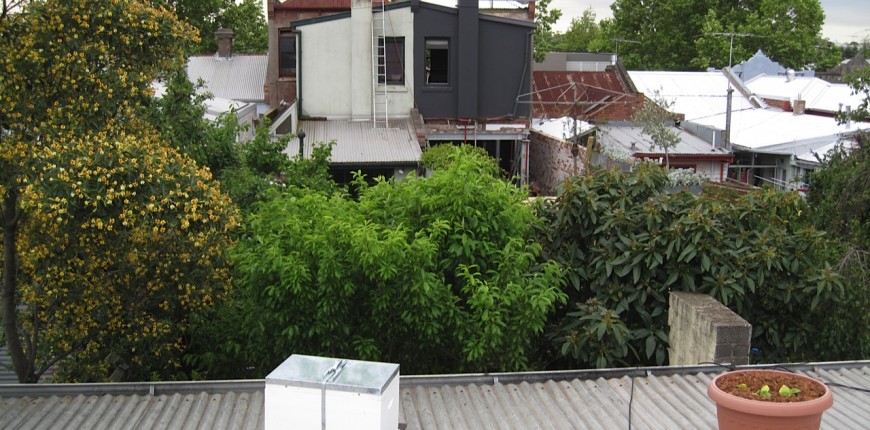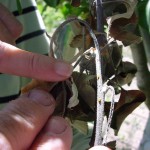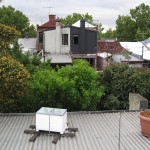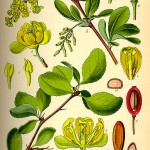In the Australian Senate on 12 December 2013 the matter of the “Future of the beekeeping and pollination service industries in Australia” was referred to the Senate. The Committee’s terms of reference are to inquire into:
(a) the importance of beekeeping and pollination service industries in Australia from a food security, environmental and financial point of view;
(b) current challenges facing the beekeeping industry domestically and internationally, and its future sustainability;
(c) the adequacy of the current biosecurity arrangements for imported and exported honey, apiary products, package bees and queen bees;
(d) Australia’s food labelling requirements, and how these affect the beekeeping industry;
(e) the recommendations from the House Standing Committee on Primary Industries and Resources 2008 report “More than Honey; the future of the Australian honey bee and pollination industries”, and the Rural Affairs and Transport References Committee 2011 report “Science underpinning the inability to eradicate the Asian honey bee” and
(f) any related matters.
While initial reactions to this Inquiry might suggest that it would only concern commercial beekeepers and pollinators, there are very good reasons why it should also be relevant to hobby beekeepers, particularly those whose hives are in coastal cities and high risk entry points. Because of their proximity to busy ports, many urban beekeepers may be the first line of detection and defence against the entry of honeybee pests and pest bees into Australia (see BeeForce). The Varroa destructor mite in particular, which has severely impacted on honey production, colony fitness and pollination of the European honey bee, Apis mellifera, overseas is only a step away from the Australian shores. V. destructor now is found in New Zealand, Papua and New Guinea, the south Pacific and South east Asia. These are only a few days sailing from Australian ports. A honey bee colony or a swarm could easily secrete itself on board and survive the journey to Australia. Once in port, the Varroa infested honey bees could spread onto land. Previously an exotic bee, the Asian honey bee, A. cerana, has already established in Australia. In 2007 A. cerana arrived undetected into the Port of Cairns and moved onto land. Since then, its colonised area has increased to about 100 km from Cairns and continues to spread. This incursion is particularly concerning as A. cerana is the original host of V. destructor. Fortunately this A. cerana incursion was not carrying any external mites, but it is still a great concern because the existence of established A. cerana colonies in the Australian environment will make it very difficult to detect new arrivals of cerana and would facilitate the spread of Varroa should these new arrivals carry Varroa. Later on, in November 2012, a swarm of A. cerana was discovered and destroyed on a ship in Sydney (see ABC Rural report). Although these bees did not carry V. destructor, they did carry a closely related mite, Varroa jacobsoni. In January 2013 another swarm of A. cerana, was discovered and destroyed in a shipping container at the Port of Townsville (ABC Rural report). Again, this swarm was not infested with V. destructor and Australia remains free of it, but many think that it is only a matter of time before V. destructor reaches Australia.
The involvement of urban beekeepers in the detection and management of Varroa incursions is essential to prevent its spread. Thus, just based on biosecurity concerns, urban beekeepers need to be included in the Inquiry’s deliberations.
Biosecurity, however, is not the only reason why the role of urban beekeepers should be considered by the Inquiry. Large numbers of residents grow their own fruit and vegetables and thus are dependent on the pollination services provided by honeybees. Although there may be some urban feral honeybee colonies and several endemic species to assist, pollination is mostly performed by managed urban hives. The preservation of pollination services to urban gardeners should be a goal just as it is for commercial agriculture.
Another reason why urban beekeepers should be considered in the Inquiry relates to their right to personal freedom. For many, keeping honeybees is a recreational activity from which they derive much satisfaction, enjoyment, physical activity and intellectual stimulation. In much the same way as society supports the keeping of domestic pets and pursuits such as recreational fishing; recreational urban beekeeping should also be supported and thus accommodated in the Inquiry’s deliberations. Keeping honey bees also provides the urban beekeeper with a greater understanding of and sympathy towards commercial beekeepers and the dependant agricultural industries. As was demonstrated in the recent campaigns to eradicate the Asian honey bee incursion around Cairns, the political voice of commercial beekeepers can be greatly enhanced by the support of the relatively large numbers of hobby beekeepers.
The Senate Committee is scheduled to release its Inquiry report by 26 March 2014. Hobby beekeepers will need to understand its recommendations, particularly those that concern urban beekeeping. Many of them will need education and support to implement the recommendations and it is hoped that the Inquiry will include in its report recommendations to facilitate this.





